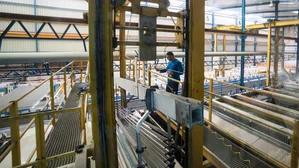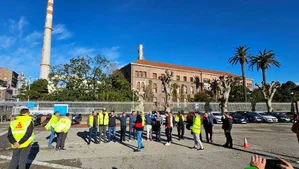Strike at Altadis Factory in Cantabria Enters Second Day with Strong Worker Support

Background and Context
In the picturesque region of Cantabria, Spain, a significant labor dispute has unfolded at the Altadis tobacco factory, a major employer in the area. The strike, which began on January 8, 2025, has garnered substantial support from the factory's workforce.
High Level of Worker Participation
As the strike enters its second day, it is clear that the majority of the plant's employees are firmly behind the action. Nearly 90% of the factory's staff have participated in the strike, indicating a strong consensus among workers regarding the grievances that led to this industrial action.
Reasons for the Strike
The strike is a response to several key issues, including concerns over working conditions, wages, and job security. Workers are demanding improvements in these areas, reflecting broader labor tensions in Spain where workers often face challenges related to employment stability and fair compensation.
Impact on Operations
The Altadis factory, known for its production of tobacco products, has seen its operations significantly disrupted by the strike. With such a high percentage of workers participating, the factory's ability to maintain normal production levels has been severely impacted. This disruption could have ripple effects on the supply chain and potentially influence the broader tobacco industry in Spain.
Community and Regional Implications
The strike at Altadis is not just an internal labor issue but also has implications for the local community. As a major employer in Cantabria, the factory's operations are crucial to the regional economy. The strike could affect not only the workers but also local businesses and services that rely on the factory's activity.
Negotiations and Future Outlook
While the strike continues, negotiations between the workers' representatives and the management of Altadis are expected to take place. The outcome of these negotiations will be crucial in resolving the dispute and restoring normal operations at the factory. The strong support from the workforce suggests that any resolution will need to address the core concerns of the employees to be successful.
In summary, the strike at the Altadis factory in Cantabria highlights the ongoing labor challenges in Spain and the determination of workers to seek better working conditions and fair treatment. As the situation evolves, it will be important to monitor the progress of negotiations and their impact on both the local community and the broader industrial landscape.
Related Stories

Over 2,600 Aspirants Participate in Initial Public Employment Exams for 2023-2024 in Suffolk and Monroe Counties
Over 2,600 candidates vie for public sector roles in Suffolk and Monroe counties, marking a keen interest in civil service careers for 2023-2024.

Cantabria Leads in Creation of Indefinite Employment Positions Following Labor Reform
Cantabria leads Spain in creating stable jobs post-labor reform, setting a positive precedent for national employment stability and growth.

New Mediation Called in Solvay Logistics Strike in Spain
In a bid to resolve the ongoing strike at Solvay's Spanish logistics division, Orecla announces a new mediation session, aiming to reconcile worker demands with company operations.

Significant Changes in Labor Laws and Housing Regulations in Spain: What Expats Need to Know
Spain introduces major labor and housing law reforms, impacting expats with changes to temporary contracts, eviction procedures, and climate-related labor measures.

Spain Set to Implement Shorter Work Week Starting 2025
Spain to reduce its work week to 37.5 hours by 2025, aiming to improve work-life balance for 12 million employees, following an agreement led by Labour Minister Yolanda Díaz.